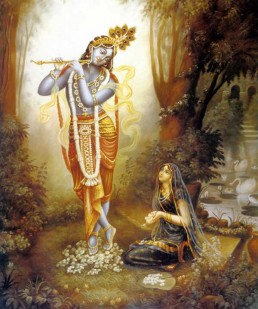Samah, who is the same; satrau ca mitre, towards friend and foe; ca tatha, and so also; mana-apamanayoh, in honour and dishonour, in adoration and humiliation; who is the same sita-usna-sukha-duhkhesu, under cold, heat, happiness and sorrow; and sanga-vivar-jitah, free from attachment to everything; Moreover,/p>p>12.19 Narah, the person; tulya-ninda-stutih, to whom denunciation and praise are the same; mauni, who is silent, restrained in speech; santustah, content; yena-kenacit, with anything-for the mere maintenance of the body, as has been said in, ‘The gods know him to be a Brahmana who is clad by anyone whosoever’ (Mbh. Sa. 245.12); further, aniketah, he who is homeless, who has no fixed place of residence-‘without a home’ [ The whole verse is ‘He,however is certainly the knower of Liberation who has attachment neither for a hut, nor for water, nor cloth, nor the three places of pilgrimage, nor a home, nor a seat, nor food.’], as said in another Smrti; sthira-matih, steady-minded, whose thought is steady with regard to the Reality which is the supreme Goal; and bhaktiman, who is full of devotion-(he) is dear to Me. [There is a repeated mention of Bhakti in this Chapter because it is means to the Knowledge which leads to the supreme Goal.] The group of qualities of the monks who meditate on the Immutable, who have renounced all desires, who are steadfast in the knowledge of the supreme Goal-which (qualities) are under discussion beginning from ‘He who is not hateful towards any creature’ (13), is being concluded:

